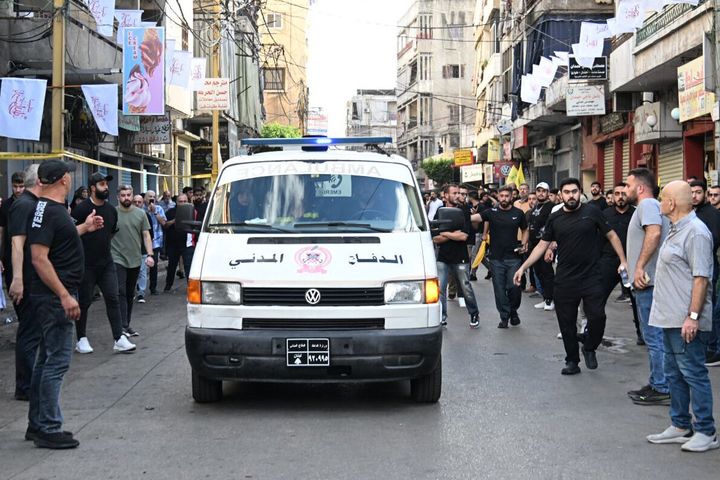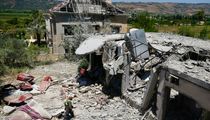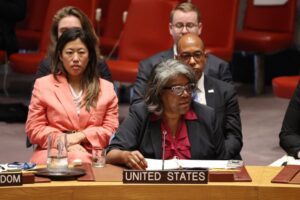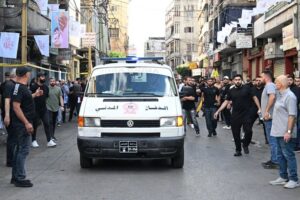Lebanon Is Rocked Again By Exploding Devices As Israel Declares A ‘New Phase’ Of War
At least 20 people were killed and more than 450 wounded in the second wave, the Health Ministry said.


BEIRUT (AP) — Walkie-talkies and solar equipment exploded in Beirut and other parts of Lebanon on Wednesday in an apparent second wave of attacks targeting devices a day after pagers used by Hezbollah blew up, state media and officials for the militant group said. At least 20 people were killed and more than 450 wounded in the second wave, the Health Ministry said.
The attacks — which were widely believed to be carried out by Israel targeting Hezbollah but have also killed civilians — have hiked fears that the two sides’ simmering conflict could escalate into all-out war.
Speaking to Israeli troops on Wednesday, Israeli Defense Minister Yoav Gallant said, “We are at the start of a new phase in the war — it requires courage, determination and perseverance.” He made no mention of the exploding devices but praised the work of Israel’s army and security agencies, saying “the results are very impressive.”
In Wednesday’s attacks, several blasts were heard at a funeral in Beirut for three Hezbollah members and a child killed by exploding pagers the day before, according to Associated Press journalists at the scene. An AP photographer in the southern coastal city of Sidon saw a car and a mobile phone shop damaged after devices exploded inside of them. A girl was hurt in the south when a home solar energy system blew up, the state news agency reported.
The new blasts hit a country still roiling with confusion and anger after Tuesday’s pager bombings, which killed at least 12 people, including two children, and wounded some 2,800 others.
The second wave also deepens concern over the potentially indiscriminate casualties caused in the attacks, in which hundreds of blasts went off wherever the holder of the pager happened to be — in homes, cars, at grocery stores and in cafes, often with family or bystanders nearby.
While the pagers were used by Hezbollah members, there was no guarantee who was holding the device at the time it was detonated. Also, many of the casualties were not Hezbollah fighters, but members of the group’s extensive civilian operations mainly serving Lebanon’s Shiite community.
At least two health workers were among those killed Tuesday. Doctors, nurses, paramedics, charity workers, teachers and office administrators work for Hezbollah-linked organizations, and an unknown number had pagers.
Mary Ellen O’Connell, a professor of law and international peace studies at the University of Notre Dame in Indiana, said booby-traps are banned under international law. “Weaponizing an object used by civilians is strictly prohibited,” she said.
The U.N. human rights chief, Volker Türk, called for an independent investigation into the mass explosions, saying, “The fear and terror unleashed is profound.”
Iran-backed Hezbollah — Lebanon’s strongest armed force — has exchanged fire with Israel’s military almost daily since Oct. 8, the day after a deadly Hamas-led assault in southern Israel triggered the war in Gaza. Since then, hundreds have been killed in strikes in Lebanon and dozens in Israel, while tens of thousands on each side of the border have been displaced. Hezbollah said its strikes are in support of its ally, Hamas.
Hezbollah announced three strikes on parts of northern Israel Wednesday, at least one of which took place after the latest round of explosions in Lebanon.
Israeli leaders have issued a series of warnings in recent weeks that they might increase operations against Hezbollah in Lebanon, saying they must stop the exchange of fire to allow people to return to homes near the border. Israel began moving more troops to its border with Lebanon on Wednesday as a precautionary measure, according to an official with knowledge of the movements who spoke on condition of anonymity because he was not authorized to speak to the media.
In his comments, Gallant said that after months of fighting Hamas in Gaza, “the center of gravity is shifting to the north by diverting resources and forces.”
As Prime Minister Benjamin Netanyahu huddled with top security officials at Israeli military headquarters in Tel Aviv, the country’s army chief, Lt. Gen. Herzi Halevi, said plans have been drawn up for additional action against Hezbollah. Israeli media say the government has not yet decided whether to launch a major offensive in Lebanon.
Hezbollah’s leader, Hassan Nasrallah, is expected to deliver a major speech on Thursday.
Secretary of State Antony Blinken said the U.S. is still assessing how the attacks in Lebanon could affect efforts to negotiate a cease-fire in the Israel-Hamas war.
The pager bombings appeared to be a complex operation months in the making, with many experts believing Israel infiltrated the supply chain and rigged hundreds of pagers with explosives before they were imported to Lebanon. But little evidence has emerged so far.
Gold Apollo, a Taiwanese firm, said it authorized a Hungary-based company, BAC Consulting KFT, to use its name on devices delivered to Hezbollah. But a Hungarian government spokesman said Wednesday the pagers delivered to Hezbollah were never in Hungary and that BAC Consultants merely acted as an intermediary.
Hungarian national security services were cooperating with international partners, the Hungarian spokesman, Zoltán Kovács, posted Wednesday on X.
Wednesday’s new bombings came as Lebanese were mourning the dead from the day before.
Two explosions went off at the edges of the funeral of two fighters, a young boy and a paramedic in southern Beirut. As ambulances screeched to the scene, the ceremony continued, with a senior Hezbollah official, Hashem Safieddine, telling mourners that Israel’s “aggression will face its special punishment.”
Israeli drones buzzed overhead – as they do often over Beirut and many parts of Lebanon – as thousands of mourners marched in a procession with the four coffins to a cemetery.
“We will not despair and we will not surrender. We will continue as long as blood circulates in our veins,” said one woman, who identified herself as Um Hussein, as she stood outside the cemetery with her four children.
A Hezbollah official told the AP that walkie-talkies used by the group exploded in several parts of the country Wednesday. The official spoke on condition of anonymity because he was not authorized to speak to the media. Lebanon’s official news agency said solar energy systems exploded in homes in several areas of Beirut and the south, wounding at least one girl.
In the village of Nabi Sheet in the Bekaa Valley, dozens gathered to mourn 9-year-old Fatima Abdullah, another victim of the pagers. Her mother, wearing black and donning a yellow Hezbollah scarf, wept alongside other women and children as they gathered around the little girl’s coffin before her burial.
Support Free Journalism
Already contributed? Log in to hide these messages.
___
This story has been updated to correct the age of one of the children killed. She was 9, not 8.
___
Spike reported from Budapest and Lai from Taipei, Taiwan. Associated Press journalists Abby Sewell and Kareem Chehayeb in Beirut; Simina Mistreanu in Taipei; Melanie Lidman and Josef Federman in Jerusalem; Zeke Miller in Washington; and Jon Gambrell in Dubai, United Arab Emirates, contributed to this report.
Support Free Journalism
Already contributed? Log in to hide these messages.







